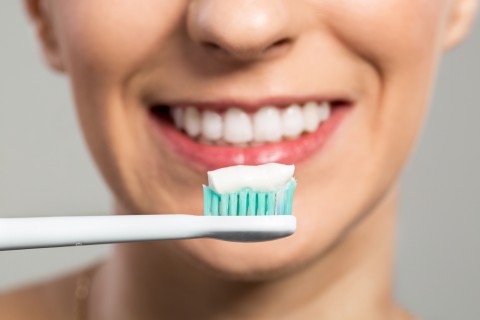 If you’ve ever had the not-so-enviable task of choosing a new brand of toothpaste, you know what a chore it can be. With so many options, it can be overwhelming trying to figure out which variety is best for everyone in your family, and which features you really need. If you’ve ever wondered exactly what the difference is between all those pastes, check out this guide for answers to everything you’ve ever wondered about toothpaste!
If you’ve ever had the not-so-enviable task of choosing a new brand of toothpaste, you know what a chore it can be. With so many options, it can be overwhelming trying to figure out which variety is best for everyone in your family, and which features you really need. If you’ve ever wondered exactly what the difference is between all those pastes, check out this guide for answers to everything you’ve ever wondered about toothpaste!
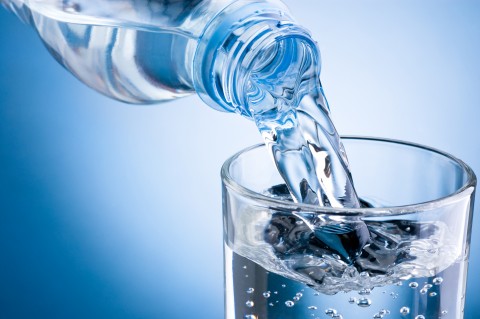 Water. It’s arguably the most important chemical substance on earth, covering 71 percent of the planet and absolutely vital to the survival of every single known life form, including humans. Though it provides no nutritional value and has no color, flavor or odor, water is now the number one bottled drink in America, surpassing soda for the first time ever. According to a study by trade publication Beverage Marketing Corp, Americans now drink an average of 39.3 gallons of bottled water per year, to the tune of $21.3 billion dollars a year. But while this trend of ditching soda may be a big step in the right direction, are we really doing ourselves any favors by drinking bottled water over tap water?
Water. It’s arguably the most important chemical substance on earth, covering 71 percent of the planet and absolutely vital to the survival of every single known life form, including humans. Though it provides no nutritional value and has no color, flavor or odor, water is now the number one bottled drink in America, surpassing soda for the first time ever. According to a study by trade publication Beverage Marketing Corp, Americans now drink an average of 39.3 gallons of bottled water per year, to the tune of $21.3 billion dollars a year. But while this trend of ditching soda may be a big step in the right direction, are we really doing ourselves any favors by drinking bottled water over tap water?
 For many women, pregnancy is a time of profound changes. From choosing names to deciding on work and childcare options, there are plenty of decisions to be made. But there are many physical changes going on, too. Pregnancy hormones have been known to do some very strange things to the body, from hair loss, strange food cravings, morning sickness and insomnia, growing another person can take a big toll on your body. One area of the body that studies have increasingly shown needs extra TLC during pregnancy is the mouth. In fact, caring for your mouth during pregnancy doesn’t just affect the mother’s health, it can affect the baby’s health too.
For many women, pregnancy is a time of profound changes. From choosing names to deciding on work and childcare options, there are plenty of decisions to be made. But there are many physical changes going on, too. Pregnancy hormones have been known to do some very strange things to the body, from hair loss, strange food cravings, morning sickness and insomnia, growing another person can take a big toll on your body. One area of the body that studies have increasingly shown needs extra TLC during pregnancy is the mouth. In fact, caring for your mouth during pregnancy doesn’t just affect the mother’s health, it can affect the baby’s health too.

Much like the coconut oil craze that is making its way into homes across the country, so too is the surge in popularity in essential oils for treating everyday maladies. But while essential oils may smell nice, can they really cure anything?
Do They Work?
To answer if essential oils work, you first need to ask what you’re trying to get them to work for. If you are looking for something that smells pleasant and helps you relax, then yes, essential oils have been found to be effective. In fact, for some patients with dental anxiety, diffusing or sniffing essential oils prior to a procedure may help to keep them feeling calm and centered.
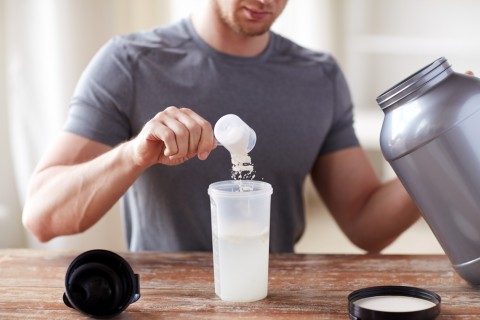
With summer here and staying fit and active at the top of many people’s priority lists this time of year, there are many extra steps you can take to stay healthy and keep your stamina up. But what many people don’t realize is that some of these so-called healthy habits could be wreaking havoc on your teeth. If you’re working hard to keep your body in great shape, don’t forget to include your mouth! Check out this list of some of the sneakiest tooth decay culprits, and find out what you can do to stop them!

We’ve all heard how bad sugary drinks like soda and fruit juices are for our teeth, but they taste so good, and let’s face it, sometimes drinking plain old water isn’t very exciting. So, when the beverage industry introduced a new iteration of flavored sparkling waters, people everywhere rejoiced that they could finally drink something that’s good and good for you at the same time. Or is it? You see, while sales of designer waters like La Croix are currently doubling in sales year after year, what many consumers don’t realize is that they’re not that much better for your teeth than regular soda.

A new smartphone app developed by students at the Indiana University School of Dentistry promises to change the way patients seek care for dental emergencies. The DentaCom app helps patients self-diagnose dental emergencies, and then find a dentist who can help them. Dr. Gary Lederman discusses the pros and cons of practicing medicine via a smartphone app.
 It seems like you can’t open a magazine or watch a health segment on the news these days without hearing about the amazing benefits of probiotics. Probiotics are microorganisms that when ingested have a variety of health benefits to the human or animal who consumes them. Probiotics are currently available at most stores in the form of supplements and are also found as an ingredient in certain food products like yogurt, cheese, pickles and even kombucha, all which offer natural and added probiotic benefits. But though probiotics are currently only ingested orally, very few are designed to benefit the mouth specifically.
It seems like you can’t open a magazine or watch a health segment on the news these days without hearing about the amazing benefits of probiotics. Probiotics are microorganisms that when ingested have a variety of health benefits to the human or animal who consumes them. Probiotics are currently available at most stores in the form of supplements and are also found as an ingredient in certain food products like yogurt, cheese, pickles and even kombucha, all which offer natural and added probiotic benefits. But though probiotics are currently only ingested orally, very few are designed to benefit the mouth specifically.
Probiotics work via a process called competitive inhibition that essentially balances the good bacteria with the bad, by allowing the good bacteria to flourish, and leaving the bad bacteria to starve and die off. The good bacteria then become the new sheriff in town and help maintain order in the affected area, whether that be your digestive system or your mouth.
 If you or your children have little white spots on your teeth, you may be wondering what they are and if they’re dangerous. Those little spots are called hypomineralization, and while they all appear in the same form, they don’t all come from the same place or pose the same risk. But don’t panic! They’re usually not dangerous and are often correctable with proper care.
If you or your children have little white spots on your teeth, you may be wondering what they are and if they’re dangerous. Those little spots are called hypomineralization, and while they all appear in the same form, they don’t all come from the same place or pose the same risk. But don’t panic! They’re usually not dangerous and are often correctable with proper care.
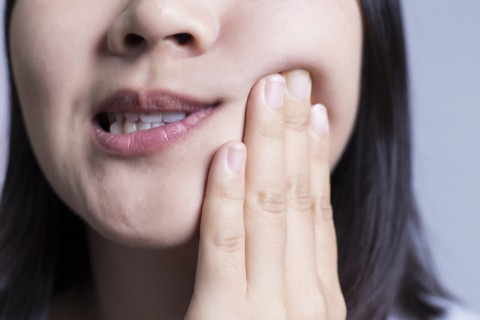 For an estimated 1 in 8 Americans, sensitive teeth are a real problem. While the condition itself has many causes, according to a 2013 study in the Journal of the American Dental Association, it most frequently affects people between the ages of 18-44, with women nearly twice as likely to experience sensitivity as men. But there may be good news on the way for sufferers of sensitive teeth, and it’s got ties to a very unlikely source: rust remover. Dr. Gary Lederman of Bellmore, New York has seen this in his patients.
For an estimated 1 in 8 Americans, sensitive teeth are a real problem. While the condition itself has many causes, according to a 2013 study in the Journal of the American Dental Association, it most frequently affects people between the ages of 18-44, with women nearly twice as likely to experience sensitivity as men. But there may be good news on the way for sufferers of sensitive teeth, and it’s got ties to a very unlikely source: rust remover. Dr. Gary Lederman of Bellmore, New York has seen this in his patients.
If you’re at all familiar with that can rust remover, you may have heard of an ingredient called potassium oxalate. The compound, which can also be used to bleach wood and textiles, and is also used as a precipitating agent in metal processing, is now being tested for use in protecting sensitive teeth.
 A few years ago, it seemed like you couldn’t go anywhere or read anything without hearing about "oil pulling"- the trend of swishing coconut oil around in your mouth for 20 minutes- supposedly to help purge toxins from your mouth and whiten your teeth. The trend seemed to die down for a while, but it’s starting to come back again thanks to social media sites like Instagram, which are chock-full of photos celebrities and beauty bloggers with perfect, gleaming smiles- many of whom credit those smiles to oil pulling. But is oil pulling really the miracle whitener it claims to be- and more importantly, is it safe? Here’s everything you need to know about this resurging trend.
A few years ago, it seemed like you couldn’t go anywhere or read anything without hearing about "oil pulling"- the trend of swishing coconut oil around in your mouth for 20 minutes- supposedly to help purge toxins from your mouth and whiten your teeth. The trend seemed to die down for a while, but it’s starting to come back again thanks to social media sites like Instagram, which are chock-full of photos celebrities and beauty bloggers with perfect, gleaming smiles- many of whom credit those smiles to oil pulling. But is oil pulling really the miracle whitener it claims to be- and more importantly, is it safe? Here’s everything you need to know about this resurging trend.
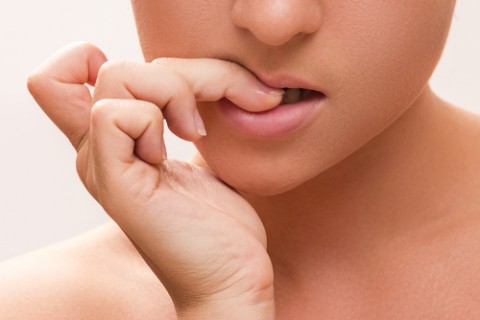 What was once referred to as simply a bad habit, nail biting or onychophagy is now classified as an oral compulsive habit – that is, a repeated movement of the mouth along the lines of Obsessive-Compulsive Disorder, or OCD. Nail biting is most commonly found in teenagers- with an estimated 45% of all teens biting their nails at one point or another. Thankfully, this dangerous habit generally stops after adolescence, but plenty of adults continue to bite their nails long after adolescence. While it’s not known exactly what causes people to start biting their nails, it is believed that nail biting begins during times of emotional distress as a coping mechanism, and either stops on its own or continues into adulthood. But while we know nail biting is terrible for your nails, did you also know that nail biting is bad for your teeth, too?
What was once referred to as simply a bad habit, nail biting or onychophagy is now classified as an oral compulsive habit – that is, a repeated movement of the mouth along the lines of Obsessive-Compulsive Disorder, or OCD. Nail biting is most commonly found in teenagers- with an estimated 45% of all teens biting their nails at one point or another. Thankfully, this dangerous habit generally stops after adolescence, but plenty of adults continue to bite their nails long after adolescence. While it’s not known exactly what causes people to start biting their nails, it is believed that nail biting begins during times of emotional distress as a coping mechanism, and either stops on its own or continues into adulthood. But while we know nail biting is terrible for your nails, did you also know that nail biting is bad for your teeth, too?
 You may have heard the term ‘neuromuscular dentistry’ used around the practice before, or read about neuromuscular dentistry here on our blog. Neuromuscular dentistry is dentistry with a purpose, and that purpose is to realign the teeth, joints, muscles, and bones of the jaw to an optimal position. By doing this, we can reduce or cure the symptoms of TMJ disorder, eliminating the chronic pain experienced by many TMJ sufferers. Similar to neuromuscular dentistry is the field of neuromuscular orthodontics. Neuromuscular orthodontics work to relax the positioning of the muscles of the upper and lower jaws, which in turn allows for optimal shaping and positioning of each jaw. This translates to greater comfort for the patient, and better, longer lasting results following orthodontic treatment.
You may have heard the term ‘neuromuscular dentistry’ used around the practice before, or read about neuromuscular dentistry here on our blog. Neuromuscular dentistry is dentistry with a purpose, and that purpose is to realign the teeth, joints, muscles, and bones of the jaw to an optimal position. By doing this, we can reduce or cure the symptoms of TMJ disorder, eliminating the chronic pain experienced by many TMJ sufferers. Similar to neuromuscular dentistry is the field of neuromuscular orthodontics. Neuromuscular orthodontics work to relax the positioning of the muscles of the upper and lower jaws, which in turn allows for optimal shaping and positioning of each jaw. This translates to greater comfort for the patient, and better, longer lasting results following orthodontic treatment.
While in many ways, neuromuscular orthodontics is quite similar to traditional orthodontics, it also differs in some major ways. While both branches of orthodontics use similar appliances and have the same end goal in mind (to straighten the teeth and perfect the smile) how they get there is what sets them apart. In regular orthodontics, more emphasis is placed on improvising as the treatment progresses, with only a general idea of how to get there. With neuromuscular orthodontics, we focus more on crafting a precise treatment plan that maps out exactly what we want to do for treatment, and exactly what we want the outcome to be.
Neuromuscular orthodontics is better for the patient because it not only maps out a perfectly tailored treatment plan, but it focuses on the best way to achieve the patient’s optimal tooth positioning. With traditional orthodontics, the goal is a beautiful smile – but it often seems like there should be a disclaimer that says ‘a beautiful smile at any cost’- with that cost usually being a great deal of pain. On the other hand, neuromuscular orthodontics works with your body to not just create a beautiful smile, but to position the teeth in such a way that the patient won’t experience the discomfort that is often experienced in traditional orthodontics. This pain comes from forcing the teeth and jaw into an unnatural positon, but with neuromuscular orthodontics, it’s not an issue because we’ve already relaxed the muscles of the upper and lower jaw prior to the orthodontic appliances being placed. This also means your body will be less likely to resist the treatment, which translates to a greater level of comfort before, during, and after treatment. This also means you’ll not only be less likely to suffer from TMJ symptoms, but your orthodontic treatment results will last longer, because that tension in your joints, muscles, and bones won’t be fighting the new positioning and trying to put the teeth and palate back to their original position.
But neuromuscular orthodontics isn’t just for adults- it can benefit anyone, especially children. Children are generally easier to treat with orthodontic procedures because in most cases, the chronic problems associated with a misaligned bite have not yet had time to manifest. But neuromuscular orthodontics is still extremely beneficial to children, because their mouths are still growing. Neuromuscular orthodontics takes this growth into account when developing a treatment plan. Using neuromuscular dentistry, we can actually predict and then ‘map out’ the mouth’s future growth. From there, we can design treatment plan that will estimate where we can expect space, movement, and expansion of the patient’s teeth and jaw. This translates to a higher rate of success, because we can align the teeth in such a way that their alignment will not be affected by future growth. With neuromuscular orthodontics, we are essentially "directing the growth" of the teeth in a way that suits the optimal alignment of the mouth- and allowing for the body to influence the development and growth of the bony structures- even in adult patients. If you’re interested in learning more about how neuromuscular orthodontics can benefit you or your family, give Dr. Lederman’s office a call at 516-882-1764.
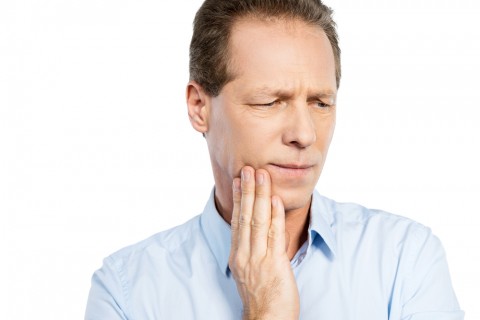 For the thousands of patients faced with the agonizing pain of a dental abscess each year, many are also faced with a common dilemma: should they go through the trouble of having a root canal- or should they cut their losses and skip ahead to a tooth extraction? There are serious pros and cons to each procedure- but they can often be difficult to decide upon when you are in pain and seeking immediate relief. With Root Canal Awareness Week right around the corner (from March 27 to April 2), we spoke to Dr. Gary Lederman of Bellmore, New York about which option is best and how to make a choice for yourself if you’re ever faced with an abscess.
For the thousands of patients faced with the agonizing pain of a dental abscess each year, many are also faced with a common dilemma: should they go through the trouble of having a root canal- or should they cut their losses and skip ahead to a tooth extraction? There are serious pros and cons to each procedure- but they can often be difficult to decide upon when you are in pain and seeking immediate relief. With Root Canal Awareness Week right around the corner (from March 27 to April 2), we spoke to Dr. Gary Lederman of Bellmore, New York about which option is best and how to make a choice for yourself if you’re ever faced with an abscess.
 You may have heard the term "biomimetic" before, but what you may not know is how it relates to dentistry- or why we are so passionate about using a biomimetic dentistry approach with our patients. The word biomimetic literally means ‘imitating (mimesis) life (bios).’ In dentistry, biomimetic dentistry means we take a minimally invasive approach to dental care- an approach which strives to keep as much of the natural tooth intact as possible. We do this by using specialized techniques, tools, and advanced materials to repair damaged teeth- instead of just cutting away the damaged area and hoping whatever we stick to the tooth stays in place and looks realistic. The ultimate goal of our practice, and of biomimetic dentistry as a whole, is to "help our patients keep their teeth for a lifetime... In a condition that’s beautiful and that’s functional."
You may have heard the term "biomimetic" before, but what you may not know is how it relates to dentistry- or why we are so passionate about using a biomimetic dentistry approach with our patients. The word biomimetic literally means ‘imitating (mimesis) life (bios).’ In dentistry, biomimetic dentistry means we take a minimally invasive approach to dental care- an approach which strives to keep as much of the natural tooth intact as possible. We do this by using specialized techniques, tools, and advanced materials to repair damaged teeth- instead of just cutting away the damaged area and hoping whatever we stick to the tooth stays in place and looks realistic. The ultimate goal of our practice, and of biomimetic dentistry as a whole, is to "help our patients keep their teeth for a lifetime... In a condition that’s beautiful and that’s functional."
What makes biomimetic dentistry different is kind of like that old metaphor about optimism versus pessimism, where you are asked whether you see the glass half full or half empty. Traditional methods of dentistry historically have taken a more pessimistic approach, giving little thought to the remaining structure of the tooth, and instead focusing on the repaired section. When you pay more attention to the restoration, it’s a lot like seeing the glass as half empty, because you are not focused on the healthy portion of the tooth. With biomimetic dentistry, we aim to repair the damage to the tooth, not to simply replace the damaged areas, as this essentially creates more damage to the tooth in the process. This is like seeing the glass half-full because we understand the importance of preserving the natural tooth.
In addition to your teeth looking better with biomimetic dentistry, biomimetic dentistry offers two things that many traditional procedures cannot: comfort and predictability. Because biomimetic procedures are minimally invasive, they are naturally less painful than traditional dentistry procedures. Not only that, but most patients experience less tooth sensitivity after the procedure, as well. As for predictability, with biomimetic dentistry, there are no surprises. You already know what your tooth looks like, so restoring that tooth creates no change in the look or feel of your natural tooth. Best of all, because the tooth is repaired, you can feel confident that the health of your teeth is protected- and that you will keep your natural teeth for the rest of your life.
So, given what we know about biomimetic dentistry, why don’t more practices apply biomimetic dentistry principles to their practice? The biomimetic approach is not as easy as traditional dentistry. Biomimetic dentistry requires a lot of skill, patience, and training. It requires the dentist and their staff to look at dentistry under a completely different lens than they were probably initially trained to do. Hopefully, in the future, this will change, and biomimetic dentistry will someday become the standard of care in all practices. But until then, finding a practice which follows the principles of biomimetic care and maintains their focus on the health of the existing tooth instead of the damaged portions of the tooth can be an integral part of enjoying the strength and beauty of your natural teeth for the rest of your life.
If you’d like to learn more about how Dr. Lederman and the biomimetic approach to dentistry can benefit the holistic health of your teeth, give us a call at 516-882-1764 for an appointment.
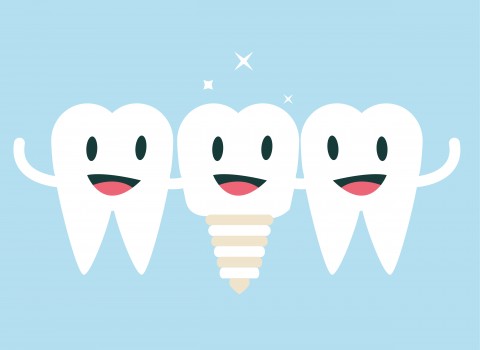 For patients who have lost teeth due to oral infections like periodontitis, a new spin on dental implants could help prevent similar infections from occurring in the future. Researchers at Katholieke Universiteit Leuven (KU Leuven) in Belgium have developed a dental implant with a built-in reservoir that can be filled with antimicrobial drugs to fight or prevent oral infection. We spoke to Dr. Gary Lederman of Bellmore, NY about this exciting new dental technology.
For patients who have lost teeth due to oral infections like periodontitis, a new spin on dental implants could help prevent similar infections from occurring in the future. Researchers at Katholieke Universiteit Leuven (KU Leuven) in Belgium have developed a dental implant with a built-in reservoir that can be filled with antimicrobial drugs to fight or prevent oral infection. We spoke to Dr. Gary Lederman of Bellmore, NY about this exciting new dental technology.
 With winter upon us and many of us planning on jetting off to warmer locales for vacation, a new study published in Science Daily may just add one more item to your pre-travel checklist: a visit to the dentist. If there’s even a chance your vacation could include scuba diving on its itinerary, Dr. Gary Lederman encourages you to have one of your twice-yearly dental exams prior to taking off.
With winter upon us and many of us planning on jetting off to warmer locales for vacation, a new study published in Science Daily may just add one more item to your pre-travel checklist: a visit to the dentist. If there’s even a chance your vacation could include scuba diving on its itinerary, Dr. Gary Lederman encourages you to have one of your twice-yearly dental exams prior to taking off.
According to a recent article published in The British Dental Journal, researchers at the University at Buffalo, in Buffalo, NY found that 41% of scuba divers surveyed reported what they referred to as "dental symptoms" in the water during a dive. These so-called ‘dental symptoms’ ranged from jaw pain to loosened crowns and even cracked teeth!
As your dentist, I have a great view of your mouth and airway at each appointment. And, as a neuromuscular dentist, I’m in a great position to help my patients who suffer from sleep apnea. The conversation on sleep apnea often begins with complaints about snoring. And, yes, snoring can interrupt your sleep but the sleep apnea that causes snoring is much more serious.
There are three kinds of sleep apnea and the first step in my sleep apnea treatment is diagnosing which a patient has. Obstructive sleep apnea occurs when the throat muscles collapse during sleep, obstructing the airway. Central sleep apnea happens when the brain fails to send the proper signals to control breathing. Mixed sleep apnea includes both conditions.
Once a patient is diagnosed, we determine which treatment will work best. I can create an orthotic that patients can use to keep the jaw in the proper position to maintain an open airway. Sometimes this is all the treatment a patient needs. Other times, it’s necessary to combine using the orthotic with CPAP treatment.
In all cases, the goal is to help patients breath fully while they sleep, resulting in restful nights, better function during the day and a lowering of risk factors for major diseases like heart disease and diabetes which are associated with Sleep apnea.
If you snore or your partner snores, please contact us for a consultation to begin diagnosis for sleep apnea. Call Today: 516-882-1764.
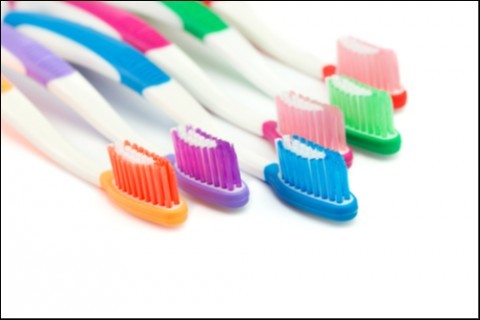 Two recent discoveries by researchers around the globe are yielding promising results for those suffering from chronic periodontitis. Periodontitis is a gum infection that if left untreated, damages both the soft tissue and bones surrounding the teeth- and can eventually lead to their loss. Periodontitis is also responsible for a variety of illnesses including heart disease, diabetes, dementia, rheumatoid arthritis, and even certain cancers. But now, universities in the US and Australia have released two unrelated studies that offer hope to those who suffer from chronic periodontitis. Dr. Gary Lederman of Bellmore, NY discusses these findings.
Two recent discoveries by researchers around the globe are yielding promising results for those suffering from chronic periodontitis. Periodontitis is a gum infection that if left untreated, damages both the soft tissue and bones surrounding the teeth- and can eventually lead to their loss. Periodontitis is also responsible for a variety of illnesses including heart disease, diabetes, dementia, rheumatoid arthritis, and even certain cancers. But now, universities in the US and Australia have released two unrelated studies that offer hope to those who suffer from chronic periodontitis. Dr. Gary Lederman of Bellmore, NY discusses these findings.
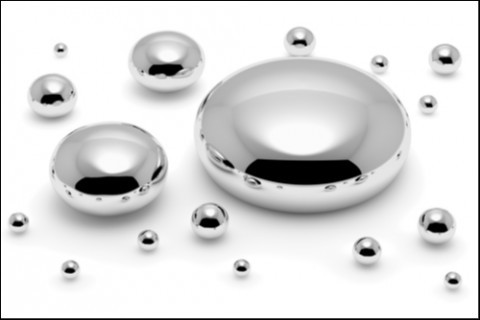 You may have noticed mercury fillings back in the news recently, following a recent study by the University of Georgia’s Department of Environmental Health. The study evaluated 15,000 patients and found that patients possessing 8 or more mercury amalgam fillings had 150% more mercury in their bloodstream than those with no amalgam fillings. While many dentists have switched over to resin composite fillings for health reasons, Dr. Lederman stopped using amalgam fillings over 20 years ago, long before anyone realized the full extent of the dangers of amalgams- but for completely different reasons.
You may have noticed mercury fillings back in the news recently, following a recent study by the University of Georgia’s Department of Environmental Health. The study evaluated 15,000 patients and found that patients possessing 8 or more mercury amalgam fillings had 150% more mercury in their bloodstream than those with no amalgam fillings. While many dentists have switched over to resin composite fillings for health reasons, Dr. Lederman stopped using amalgam fillings over 20 years ago, long before anyone realized the full extent of the dangers of amalgams- but for completely different reasons.




